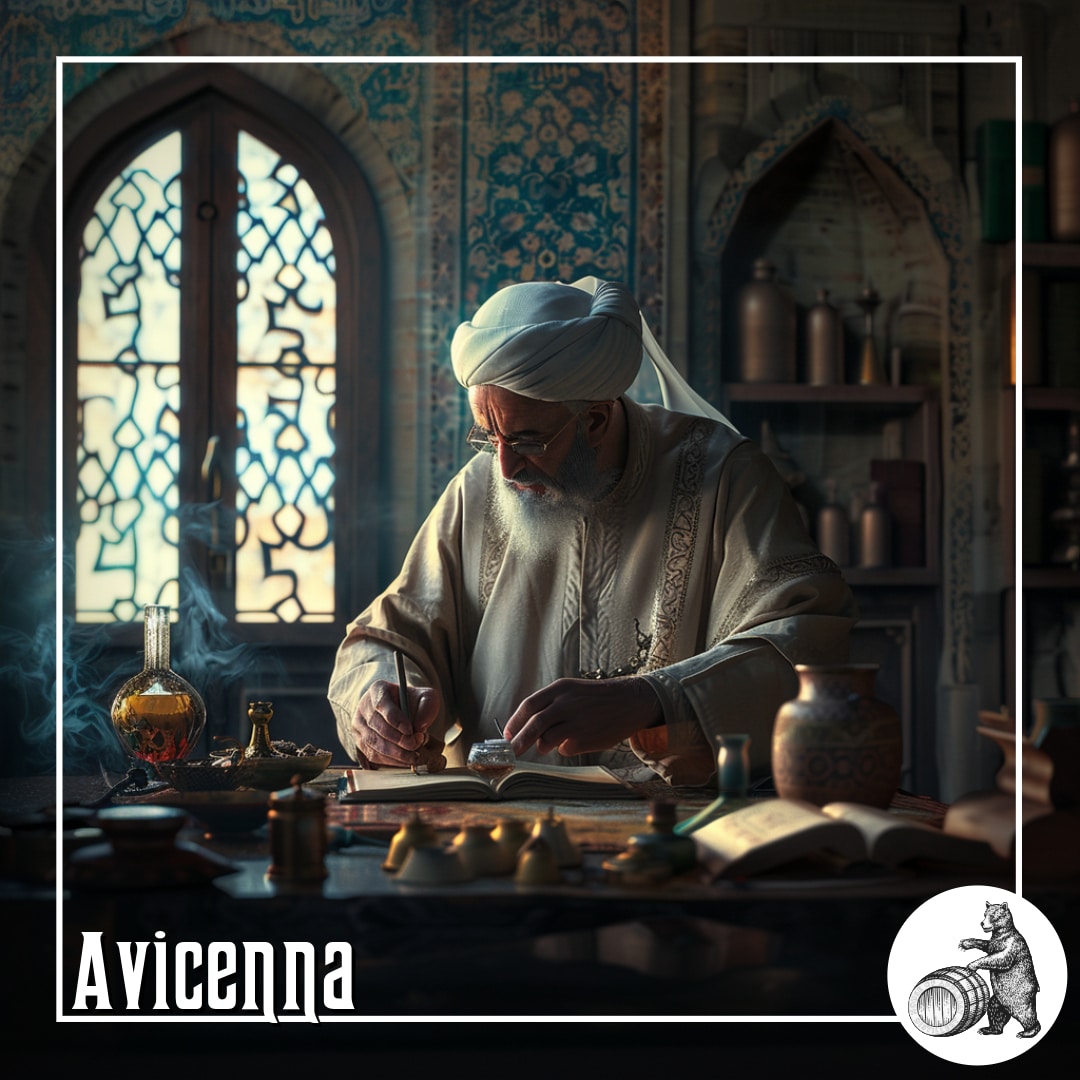Avicenna
Avicenna’s Contributions to the Art of Distillation: A Journey Through Time
In the annals of history, few figures have left as indelible a mark on the fields of medicine, philosophy, and science as Avicenna. Born in 980 AD in what is now Uzbekistan, Avicenna—also known as Ibn Sina—was a polymath whose works influenced countless generations. Among his many contributions, Avicenna’s advancements in the art of distillation stand out, particularly for their enduring impact on both medicinal and commercial practices.
The Foundation of Avicenna’s Knowledge
Avicenna’s early education was eclectic, encompassing a wide array of subjects including mathematics, astronomy, logic, and most importantly, medicine. By the age of 16, he was already practicing medicine, drawing from ancient texts and his own observations. His exposure to earlier works on alchemy and chemistry, particularly those of Greek and Persian origin, laid the groundwork for his future innovations.
Distillation Before Avicenna
Distillation was not a novel concept in Avicenna’s time. Early forms of the process were practiced by civilizations such as the Egyptians, Greeks, and Romans, primarily for extracting essential oils and producing perfumes. However, these methods were rudimentary and often inefficient. The alembic still, attributed to Maria the Jewess, was an important early invention, but it was Avicenna who refined and expanded these techniques to new heights.
Avicenna’s Innovations in Distillation
Avicenna made significant enhancements to the alembic still, optimizing its design for more effective separation of components. His refinements allowed for more precise control over the distillation process, resulting in purer and more concentrated extracts.
One of Avicenna’s critical advancements was the introduction of a cooling system to the distillation apparatus. By using a continuous flow of cold water around the neck of the alembic, he was able to condense vapors more efficiently. This not only improved the yield but also the quality of the distilled product.
Avicenna’s primary interest in distillation was driven by his desire to improve medicinal treatments. He distilled a variety of substances to isolate their active components, creating more effective and potent medicines. His distilled remedies included extracts of plants, herbs, and even minerals, which he used to treat a range of ailments. Avicenna’s magnum opus, “The Canon of Medicine,” includes detailed descriptions of his distillation techniques and their medicinal applications. This text became a cornerstone of medical education in both the Islamic world and Europe for centuries. In it, Avicenna meticulously documented the processes and benefits of distilled medicines, emphasizing their efficacy in treating diseases.
The Impact on Medicine
Avicenna’s innovations in distillation had a profound impact on the field of medicine. By isolating the active components of medicinal plants, he was able to create treatments that were more consistent and reliable than their non-distilled counterparts. This precision allowed for more accurate dosing and a better understanding of the therapeutic properties of various substances.
Legacy and Influence
Avicenna’s works were translated into Latin during the 12th century and became widely studied in European universities. His distillation techniques influenced countless scholars and practitioners, contributing to the advancement of both medicine and chemistry in the medieval and early modern periods.
The methods and principles laid out by Avicenna served as a foundation for future advancements in distillation. His work paved the way for later figures such as Paracelsus, who further explored the medical applications of distilled substances, and ultimately the development of modern pharmaceuticals.
Avicenna’s contributions were not limited to the Islamic world or Europe; they reached as far as China and India, where his texts were studied and integrated into local medical practices. This cross-cultural exchange enriched the global understanding of medicinal chemistry.
Avicenna’s Enduring Relevance
Even today, Avicenna’s contributions to distillation remain relevant. Modern distillation techniques, whether used in pharmaceuticals, essential oils, or spirits, owe a debt to his innovations. His emphasis on precision, purity, and the therapeutic potential of distilled substances continues to resonate with contemporary scientists and distillers.
Avicenna’s journey through the realms of medicine, philosophy, and science was marked by a relentless pursuit of knowledge and innovation. His contributions to the art of distillation not only revolutionized the medicinal practices of his time but also laid the groundwork for future advancements. By refining distillation techniques and emphasizing their medicinal applications, Avicenna ensured that his legacy would endure for centuries, influencing countless generations and leaving an indelible mark on the history of science and medicine.
The Distilling Culture
BLOG
Embark on a global journey, and you’ll find that cultures possess tales that harken back to their ancient beginnings of distillation, brewing, and winemaking.
info@houseofapplejay.com
67 Fowler St, Bldg B, East Ellijay, GA 30540

